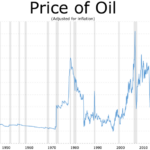Market Regulations in China, South Africa, and Turkey Most Restrictive of Competition
- OECD urges action to tame lobbying as industrial policy takes hold
- Market regulations in China, South Africa, and Turkey found to be most restrictive of competition
- Lithuania, Sweden, and Ireland found to be least restrictive
- U.S. more restrictive than the average OECD member but with other factors driving innovation and productivity growth
- Barriers to new entrants remain widespread, weakening competition
- Only a few countries have a single website for business information and procedures
- Digital markets at risk of becoming quasi-monopolies due to high entry barriers
- Efforts needed to address digital market challenges
- Professions with strong interest groups hinder competition
The Organization for Economic Cooperation and Development (OECD) has urged countries to make markets more competitive and open, as industrial policy gains prominence. The organization’s review found that market regulations in China, South Africa, and Turkey were most restrictive of competition, while Lithuania, Sweden, and Ireland were least restrictive. The U.S. was more restrictive than the average OECD member but has other factors driving innovation and productivity growth, including access to finance and skills. Barriers to new entrants remain widespread, weakening competition. Only a few countries have a single website providing all business information and procedures. Digital markets are at risk of becoming quasi-monopolies due to high entry barriers, preventing the diffusion of new technologies and raising productivity. The OECD called for efforts to address these challenges.
Factuality Level: 8
Factuality Justification: The article provides accurate and objective information about the OECD’s findings on market regulation and its impact on innovation and productivity growth. It discusses various countries’ progress in reducing barriers to competition and the challenges faced in different sectors. The article also highlights the importance of transparency in policymaking and the need for regulatory reforms, particularly in digital markets.
Noise Level: 6
Noise Justification: The article provides some relevant information about the OECD’s findings on market regulation and its impact on innovation and productivity growth. However, it contains some repetitive information and could benefit from a more focused analysis of the factors contributing to these issues. It also dives into unrelated territories with the mention of lobbyists and their influence in various countries without directly connecting it to the main topic. The article does not offer significant actionable insights or new knowledge for readers.
Key People: Alvaro Pereira (OECD’s chief economist), Paul Hannon (Writer)
Financial Relevance: Yes
Financial Markets Impacted: Financial markets may be impacted by changes in regulatory frameworks and industrial policies of countries, as well as the ease or difficulty of doing business.
Financial Rating Justification: The article discusses the OECD’s review of market regulations among its members and their impact on productivity growth. It mentions that some countries have become more restrictive over time, which can affect competition and innovation. The article also highlights the importance of transparency in policymaking to prevent incumbents from dominating markets and protect smaller businesses. Additionally, it touches upon digital markets and the need for regulatory changes to address monopolies and barriers to entry.
Presence Of Extreme Event: No
Nature Of Extreme Event: No
Impact Rating Of The Extreme Event: No
Extreme Rating Justification: There is no mention of an extreme event in the text.
 www.wsj.com
www.wsj.com 





